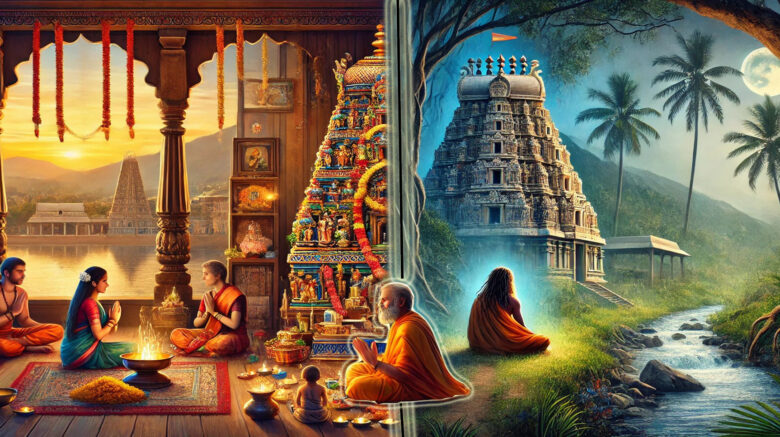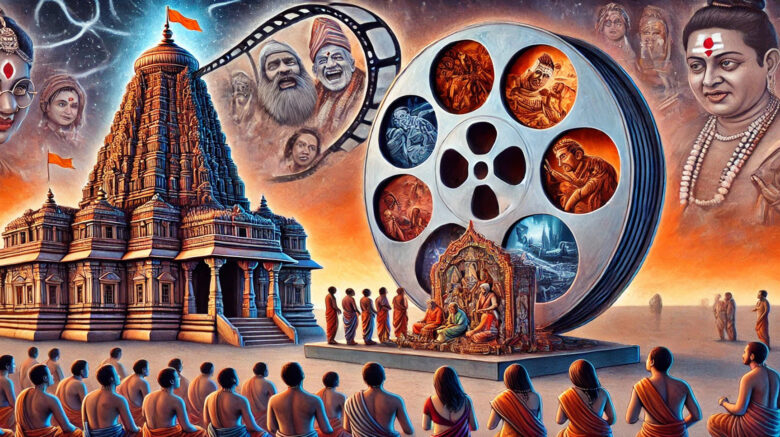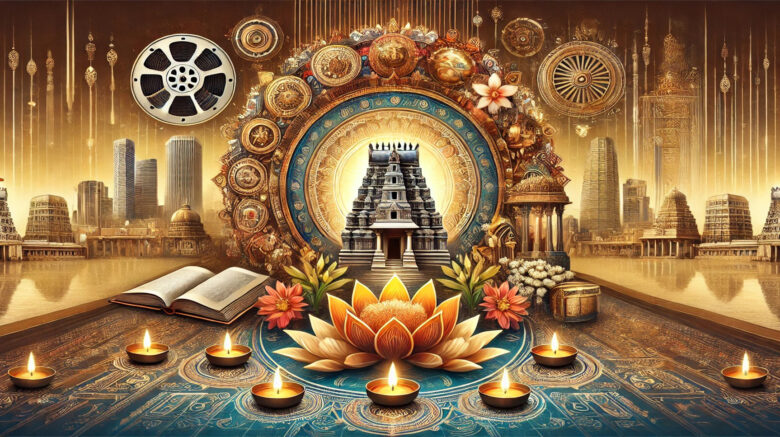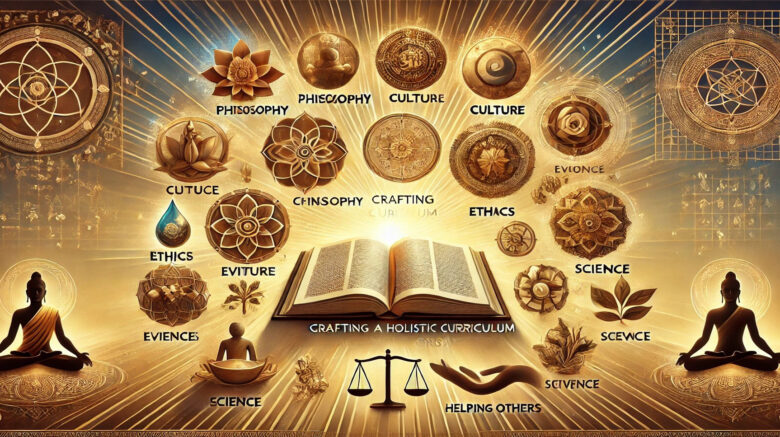Sanatan Dharma—often referred to as the eternal law—provides a comprehensive framework for living that integrates personal duty, familial obligations, and communal well‐being. At its heart, this ancient tradition offers a structured way of life that has enabled millions of householders to nurture both their inner selves and the societies in which they live. In this chapter, we explore the difference …
Religious Commitment or Spiritual Exploration—What is Essential for Hindus Today?







